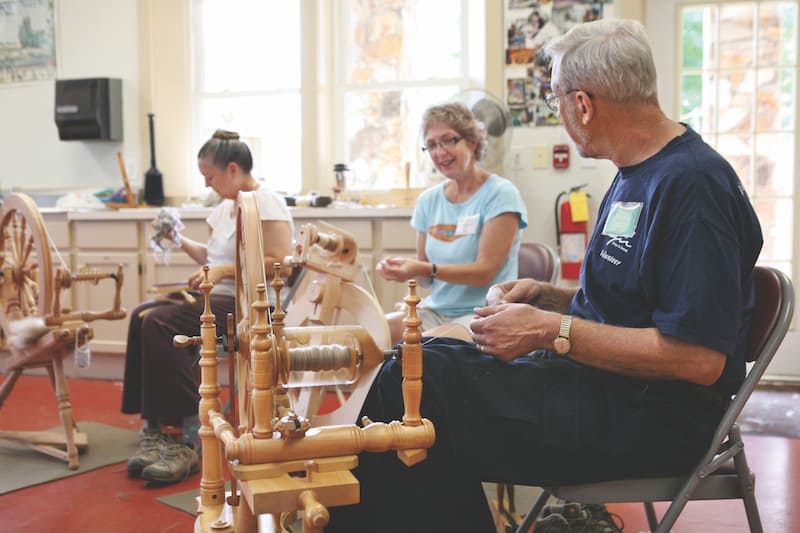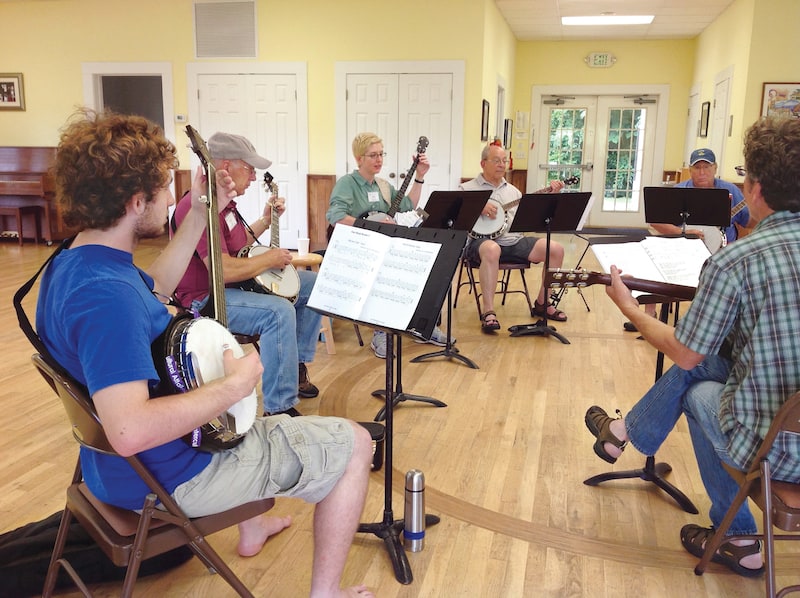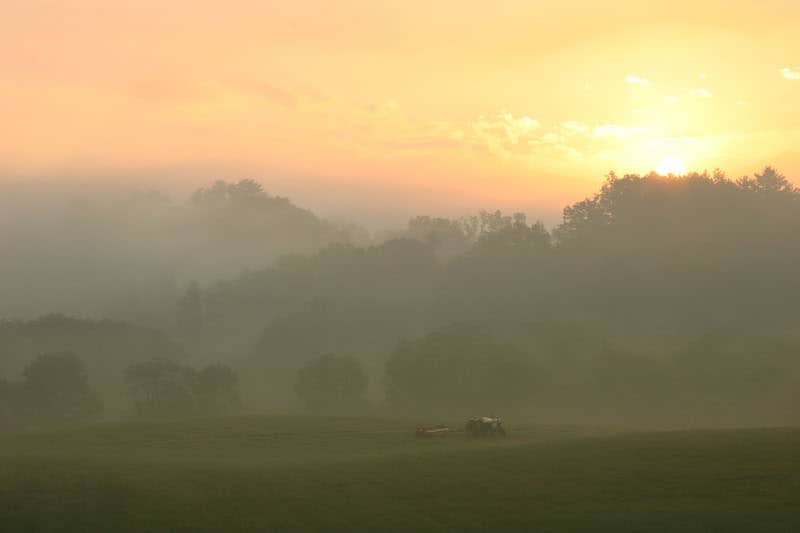THE JOHN C. CAMPBELL FOLK SCHOOL changes you. Take my word for it or treat yourself by taking a drive to the North Carolina mountains to experience it for yourself. You’ll be planning your return trip even before you head back home.
Nestled in a 300-acre valley in Brasstown, N.C., about 30 minutes north of Blairsville, the John C. Campbell Folk School is a living world of art, history, community and nature. Founded in 1925 to preserve and share the crafts, techniques and tools that Appalachian people used in everyday life, the school offers classes year-round to students of all ages and backgrounds, typically over weeklong sessions. Although it is designated a historic district in the National Register of Historic Places, the school isn’t a historic village but is rather an active community where students joyfully perpetuate the region’s rich tradition of handcrafting functional art.

Day visitors enter a humming world of woodworking, basket weaving, dulcimer playing, contra dancing and family-style meals. While the teaching of crafts is at the heart of the school’s purpose, the overall experience of time spent there transcends art, with sharing and community being an integral part of the adventure.
Getting to the Folk School takes you through the scenic mountains and valleys of North Carolina. Consider the breathtaking drive to the school a part of the experience itself. Once you’ve arrived at the school, stop at the Keith House or the craft shop to get your bearings from a friendly staff member. Maps, weekly schedules and information on the evening’s program are available there as well as tips and recommendations from knowledgeable sources.
If you’d like to eat in the school’s dining hall, be sure to call at least a day ahead to ask if they can accommodate you. Space permitting, you’ll dine with the school’s students family-style – a social and nutritional breaking of bread. The Folk School Cookbook, which was published in 2018, provides recipes for Southern Appalachian favorites, many of which are staples in the dining hall. If there’s no space in the dining hall, bring a picnic basket and enjoy a meal on the grounds. Rocking chairs, benches and picnic tables are scattered throughout the campus.
Visit the school’s studios, where students create Appalachian art in specialty workshops, for a truly memorable experience. Calligraphy, bookbinding, blacksmithing, jewelry, spinning and dyeing, broom making, and quilting are just a few of the school’s offerings.

Visitors are encouraged to enter the studios to observe, and when appropriate, interact with the students. Former work-study student Christine Traini explains: “It’s fun to show visitors what you’re working on. Students are there to learn, but they’re also there for the bigger experience of community and sharing with others.” Basketry and gourd craft instructor Sena King agrees. “I think it’s marvelous that visitors come in the classes. How is a person ever going to know if they want to take a class if they can’t come in?”
For day visits, Traini recommends dropping by blacksmithing or woodworking, both lively studios where art is created before your eyes. Marketing & Communications Director Keather Gougler recommends visiting the Folk School’s website for current class and program schedules before your trip. Download a catalog to plan your trip around a certain class, such as “Shape Note Singing,” or around a theme week, such as “Scandinavian Heritage Week.” Keep in mind that the bulk of the classes are offered during the week, although weekend classes are offered about 15 times per year.
Well-kempt footpaths connect the buildings, and touring the campus is slow-paced and peaceful. Stroll the school’s garden and greenhouses, and depending on the time of year, strike up a conversation with garden staff about heirloom seed varieties and what the dining hall is serving from the garden that week.
The newly refurbished history center houses a display that highlights representative aspects of 20th century Appalachia in visual art, fine and folk craft, music, historic film footage, and photographs. Stop in to observe the past and reflect on how these traditions are carried on today.
Return to the craft shop after having gained a greater appreciation for handcraft on your tour. Representing work from over 300 juried craftspeople, the craft shop is a nationally recognized fine craft gallery. From pottery to brooms, jewelry to rugs, fire poker sets to turned-wood bowls, each piece is beautiful enough to display alone. These items, however, were made with the intention that they be used – a fact that reflects the lives of the region’s forebears, who fashioned such items with the same intent. Shop in the craft shop guilt free, knowing your purchases support the arts and traditions of Appalachia.

Evenings at the Folk School bring nightly events, from contra dancing to concerts, almost all of which are open to the public. Most dance classes are advertised as “no experience needed,” and attendees are greeted warmly by folks who are happy to share their passion with you. Additional evening events include folk music and folklore, English country dancing, craft demonstrations and more.
The Folk School is a place where sharing knowledge and building community is paramount. Competition and grading are disregarded in favor of hands-on instruction, discussion and conversation. Day visitors are integral to the school because, after all, much of the enjoyment of fine craftsmanship is sharing it with others.
For more information, please visit www.folkschool.org.